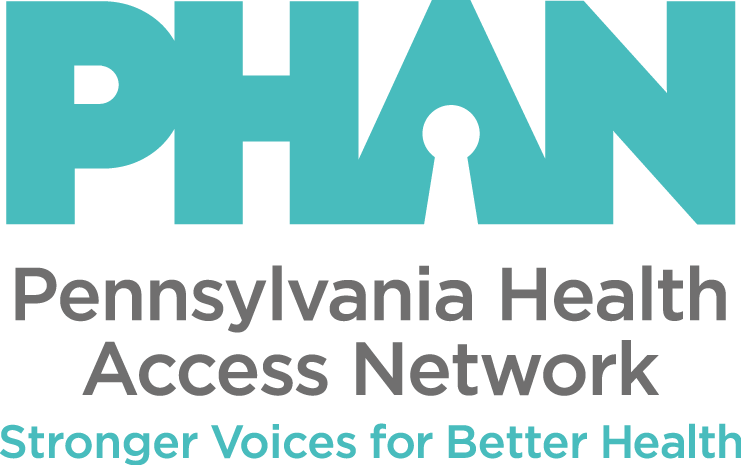- Submit Nominations for Partnership for Quality Measurement (PQM) Committees
- Unleashing Prosperity Through Deregulation of the Medicare Program (Executive Order 14192) - Request for Information
- Dr. Mehmet Oz Shares Vision for CMS
- CMS Refocuses on its Core Mission and Preserving the State-Federal Medicaid Partnership
- Social Factors Help Explain Worse Cardiovascular Health among Adults in Rural Vs. Urban Communities
- Reducing Barriers to Participation in Population-Based Total Cost of Care (PB-TCOC) Models and Supporting Primary and Specialty Care Transformation: Request for Input
- Secretary Kennedy Renews Public Health Emergency Declaration to Address National Opioid Crisis
- Secretary Kennedy Renews Public Health Emergency Declaration to Address National Opioid Crisis
- 2025 Marketplace Integrity and Affordability Proposed Rule
- Rural America Faces Growing Shortage of Eye Surgeons
- NRHA Continues Partnership to Advance Rural Oral Health
- Comments Requested on Mobile Crisis Team Services: An Implementation Toolkit Draft
- Q&A: What Are the Challenges and Opportunities of Small-Town Philanthropy?
- HRSA Administrator Carole Johnson, Joined by Co-Chair of the Congressional Black Maternal Health Caucus Congresswoman Lauren Underwood, Announces New Funding, Policy Action, and Report to Mark Landmark Year of HRSA's Enhancing Maternal Health Initiative
- Biden-Harris Administration Announces $60 Million Investment for Adding Early Morning, Night, and Weekend Hours at Community Health Centers
Physician Assistant Modernization Bills Passed in Pennsylvania
Physician Assistant modernization bills, SB 397 (now Act 78) and SB 398 (now Act 79) passed out of the Pennsylvania House of Representatives and the Senate and were signed into law by Governor Tom Wolf. The bills remove unnecessary restrictions on Physician Assistants (PAs), place decision making with PAs and supervising physician(s), place a permanent PA representative on the Medical and Osteopathic Boards, allow the filing of written agreements without needing prior approval of written agreement (states that already allow this do not show an increase in malpractice/reportable events), remove the 100 percent countersignature requirement and allow supervising physicians to determine need for countersignature, and align the supervision requirements under the Medical Board and Osteopathic Board.
A summary of the changes in the Medical and Osteopathic Practice Acts after passage of SB 397 and 398 is available on the Pennsylvania Society of Physician Assistants (PSPA) website.
Pennsylvania Allocating $6.5 Million to Support, Retain Nurses
Pennsylvania nurses are among the frontline workers and first responders who were cheered on by their communities at the beginning of the statewide shutdown. But they were showing signs of burnout long before the COVID-19 pandemic began. That’s why Sen. Maria Collett, D-Montgomery, a registered nurse, spearheaded the COVID-19 Nursing Workforce Initiative, a plan to use $6.5 million in American Rescue Plan funds to support and retain nurses across the commonwealth. The Pennsylvania Higher Education Assistance Agency, which administers financial aid programs, will create and manage the loan forgiveness program. When it launches, eligible nurses — Pennsylvania residents who are licensed through the Department of State and began working at a qualifying facility before Dec. 31, 2021 — can apply for up to $7,500 in assistance to reduce outstanding loan debt, with a cap of $2,500 per year for three years. The Department of Labor and Industry will operate the apprenticeship and partnership program to showcase new career opportunities in the nursing field. At least one new apprenticeship and one new industry partnership will target underrepresented populations.
Pennsylvania Plans to Apply for New HRSA State Loan Repayment Program Funding
The American Rescue Plan (ARP) made $100 million available to fund state-run programs that support, recruit and retain primary care clinicians through HRSA’s State Loan Repayment Program (SLRP). All 50 states, Washington, D.C. and U.S. territories can apply to receive between $80,000 and $1 million annually to fund their own loan repayment programs for providers serving in underserved areas. The funding opportunity has two new flexibilities available throughout the next project period (FY 2022-2026):
- No cost-sharing requirement: States are not required to demonstrate a match for the federal funding received through the grant.
- Administrative costs: States can dedicate 10% of the SLRP award to administrative costs, to increase state capacity to administer a loan repayment program.
The deadline to apply is April 8, 2022, and Pennsylvania intends to apply. Notices of Award will be announced prior to the project start date of Sunday, May 1, 2022.
Collaboration Aims to Inspire Rural COVID Vaccine Confidence
The Ad Council, COVID Collaborative and rural organizations including the American Farm Bureau Federation, the Cooperative Extension System, the National Association of Farm Broadcasting and the National Association of Community Health Centers (NACHC) have collaborated to develop a series of public service announcements that highlight rural voices and stories involving COVID-19 in order to increase public confidence in vaccination. The summary discusses the importance of local perspectives to building community trust, as well as the impacts of the pandemic in rural areas.
Study Finds State Vaccination Lotteries Didn’t Work
None of the 19 states that implemented statewide COVID-19 vaccine lotteries this summer saw an increase in vaccination rates as a result of the incentive programs according to a study published in JAMA Health Forum. Compared with states that didn’t have vaccine lotteries, the study found that there was essentially “zero difference” in the vaccination rates of states that held vaccine lotteries and those that didn’t.
CMS Seeks to Transition ‘Vast Majority’ of Medicaid Beneficiaries to Accountable Care by 2030

The Centers for Medicare and Medicaid Services (CMS) announced a goal of driving all Medicare fee-for-service beneficiaries and most Medicaid beneficiaries into accountable care by 2030, according to a white paper outlining a “strategic refresh” at the CMS Innovation Center. Accountable care relationships might include advanced primary care, Accountable Care Organizations or other models that emphasize accountability for quality and total cost of care. Other strategic objectives outlined in the white paper include advancing health equity and affordability, spurring care innovations and partnering with stakeholders.
BeHeard BeHealthy in Pennsylvania

Creating healthy communities means much more than simply being able to see a doctor. To thrive, communities need safe, stable housing, access to nutritional food, reliable transportation, access to affordable treatments and much more. But the voices of communities – especially Black and Brown, rural and other underserved communities – are rarely heard in conversations at the state and local level that impact their health.
The new BeHeard BeHealthy PA initiative will create new ways for communities across Pennsylvania to participate in building healthier communities by making their voices heard through listening sessions, a new survey panel and advocating for community-driven priorities at the state and local levels. The Pennsylvania Health Access Network (PHAN) is collaborating with trusted and locally connected organizations across Pennsylvania to engage local communities and make their voices heard! PHAN is seeking community partners to assist. The role of each community partner is to facilitate community conversations, recruit members of the local community to join a new survey panel and identify community leaders to take part in statewide efforts to advance community driven policies at the state and local levels.
New HRSA Find a Health Center Video Released

The Health Resources and Services Administration (HRSA) released a new video, “Find a Health Center,” to increase awareness about health centers and help potential patients locate a health center near them.
The Association of Rurality and Breast Cancer Stage at Diagnosis
A new study by the WWAMI Rural Health Research Center, led by David Evans, MD, found that patients from rural areas have lower breast cancer screening rates than urban patients.
The researchers found that a greater proportion of rural patients received an initial breast cancer diagnosis at a late stage compared with urban patients and that patients living in remote small rural counties had the highest rate of late-stage breast cancer at diagnosis. Breast cancer survival is known to be worse for rural patients compared to urban, and late stage at diagnosis may be a contributing factor. These disparities are longstanding and suggest areas for further research, advocacy, policy changes, and patient education. Further study is needed to identify appropriate screening availability in rural areas and the burdens that travel presents for patients where screening is not available.
Read more about rural breast cancer screening and a companion study of rural colorectal cancer screening.
New Policy Brief on CAHs Addressing Community Social Needs

The Flex Monitoring Team has released a new policy brief summarizing characteristics of Critical Access Hospital (CAH) initiatives addressing the social needs of individuals in their communities. The brief, How Critical Access Hospitals Are Addressing the Social Needs of Rural Populations, highlights the importance of partnerships in rural communities, as well as the need for support of hospital leadership, ample funding, and dedicated staff to make these programs effective.
In tandem with the previously published report, Rural Initiatives Addressing Community Social Needs, this work can provide additional knowledge for developing population health initiatives in rural areas.
